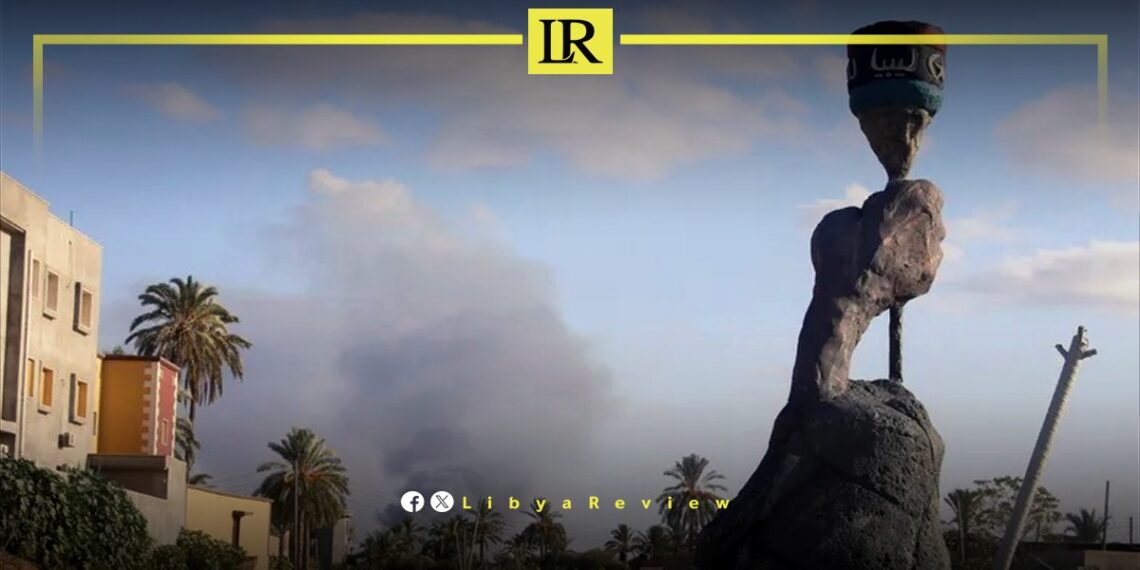On Saturday, eyewitnesses reported that traffic was halted on the crucial roadway linking Gate 60 and Tawergha due to skirmishes between the support unit of the Misrata Security Directorate and an armed group led by someone named “Bahiyya,” as reported by the Libya Press platform.
The road, a vital link between the two areas, saw disruptions as the confrontation escalated, causing significant delays for travelers and local traffic. The clashes reflect ongoing tensions in the region, highlighting security challenges in maintaining peace and stability.
Details about the cause of the skirmish or any casualties remain unclear. Local authorities and security forces are likely to increase their presence in the area to manage the situation and restore order to ensure the safety and mobility of civilians and commercial activities along this important route.
Safety in Libya’s capital, Tripoli is continuously deteriorating, with threats of kidnapping and murder a daily occurrence for residents.
Over the years, kidnappings, arrests, and assassinations have increased substantially in western Libya. This is evident in the repeated statements of the Ministry of Interior, about the arrest of gangs and individuals involved in the kidnapping and extortion of expatriate workers.
In October 2022, the Head of the Zaher Al-Jabal Police Station, Abdel-Salam Abdullah Abdel-Nabi, was assassinated by unknown assailants. Just days before, a policeman was assassinated in the same city. Despite this happening in full view of everyone, those at the helm of power do not move a finger to identify the perpetrators. The security authorities do not move to arrest them, or announce their names.
In the same month, Salah Abdel-Salam, the former Executive Director of the Civil Society Commission of the Libyan Presidential Council, was kidnapped in central Tripoli.
The National Commission for Human Rights in Libya (NCHRL) said that there are reports of security forces being involved in the kidnapping of Abdel-Salam. There has been no contact with him since the incident, and the identity of the security agency that kidnapped him has not been established. So far, his fate remains unknown.
Libya ranked fourth in the Arab world, and twenty in the world, among the countries with the highest levels of organised crime, according to the report of the Global Initiative to Combat Crime (GLOBAL INITIATIVE).
In a report on Libya, the foundation based its indicators on several factors, most notably human trafficking, money laundering, drug trafficking, crimes related to animal and plant life, human smuggling, and arms trade.
According to the report, Libya ranked last in the world in terms of the degree of resilience against organised crime. This reflects the inability of the state to confront the scourge of crime.
Murder has been a weekly occurrence, throughout the country. The number of extrajudicial killings in 2022 has surpassed 173 people. This is especially due to the proliferation of weapons and the inability of the security services to monopolise the possession of weapons.
Libya ranked first in North Africa, third in the Arab world after Syria and Somalia, and 25th in the world according to the crime index of the database encyclopaedia, Numbeo.
Libya recorded a 60.5% crime rate, which is considered high, while recording a 39% safety rate. During the past eight years, the crime rate in Libya lowest in 2017 at 54%, and the worst in 2015 with 70%.


